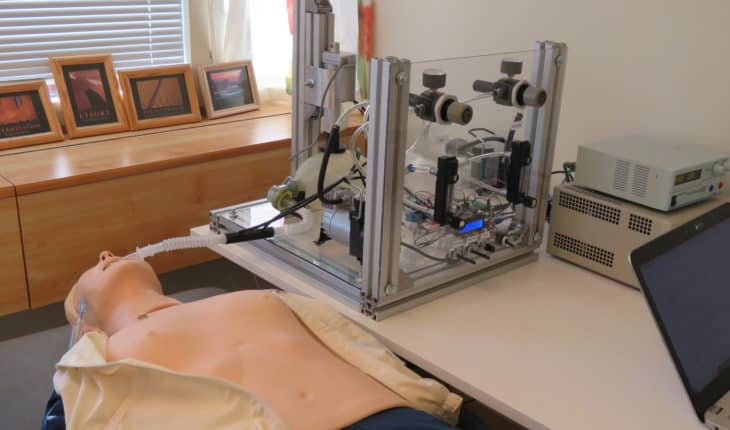A ventilator developed by space scientists at the University of Aberdeen is to be used in the fight against Covid-19 in, Rwanda, Africa.
The University has signed an agreement with a medical device company in Rwanda that will assemble the ATMO-Vent (Atmospheric Mixture Optimization Ventilator) for use in hospital settings in Rwanda and neighbouring countries.
The University’s Planetary Sciences Group developed the device in response to worldwide efforts to produce more ventilators to treat Covid-19 patients.
They used their expertise in the development of life support systems for manned space missions to build the device, which uses certified and low-cost components which are commercially available for use on Earth.
Quicker to build, more cost-effective and more user-friendly than any other model currently in development, the design means that it is suited for rapid deployment in healthcare settings worldwide.
This led to the agreement with the Kigali-based Medical Technology Company (MTC) Ltd, which designs and manufactures medical equipment, working closely with the University of Rwanda.
Professor Javier Martín-Torres, who heads the Planetary Sciences Group, said: “As a group we are very excited to see that the University has signed this agreement with MTC Ltd to develop the ATMO-Vent in Rwanda.
“We designed the ATMO-Vent in response to worldwide efforts to produce more ventilators for Covid-19 patients, using our experience in developing instruments for Earth and planetary exploration to build a device suited for rapid deployment in healthcare settings worldwide.
“We are delighted to see it begin to fulfil its intended purpose, and my hope is that our research group can support the development of ATMO-Vent in Rwanda to a point where MTC Ltd can be completely independent in its production of the device.”
Professor Marion Campbell, Vice Principal for Research at the University of Aberdeen, said: “This agreement came about through the active links between the School of Geosciences and the University of Rwanda, which underlines the importance of international scientific collaboration in meeting global challenges.
“Across multiple disciplines, our research community is working as part of a broad effort to harness our world-renowned academic expertise in the fight against Covid-19, and this is a prime example of how our researchers are applying their skills to meet the challenges created by the pandemic.”
- Combination of drugs could prevent thousands of heart attacks - 21st April 2025
- UQ Study Links Poor Teen Diets to Heavy Social Media Use - 21st April 2025
- Gut microbiome could delay onset of type 1 diabetes - 3rd April 2025






